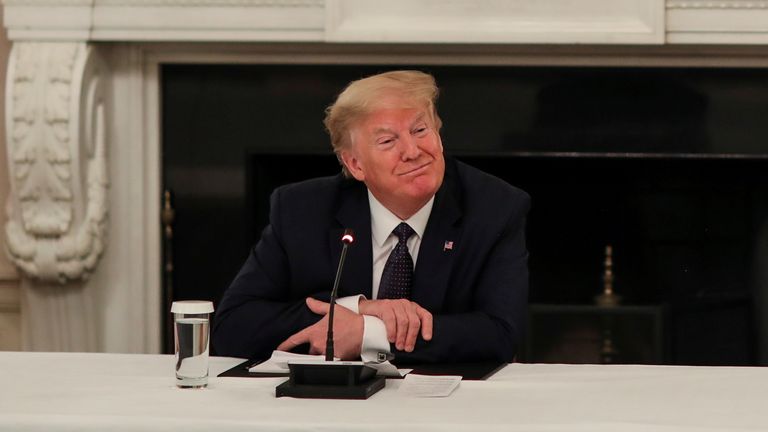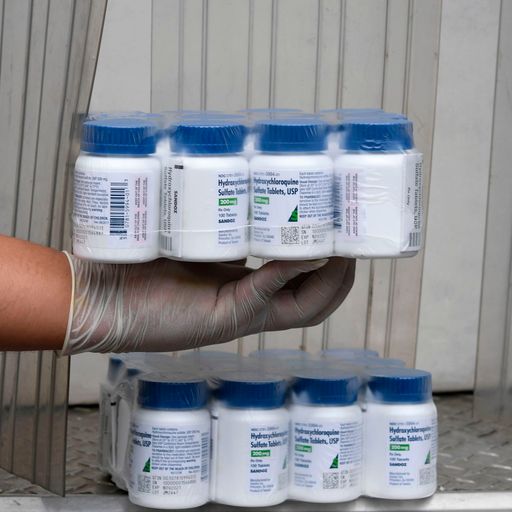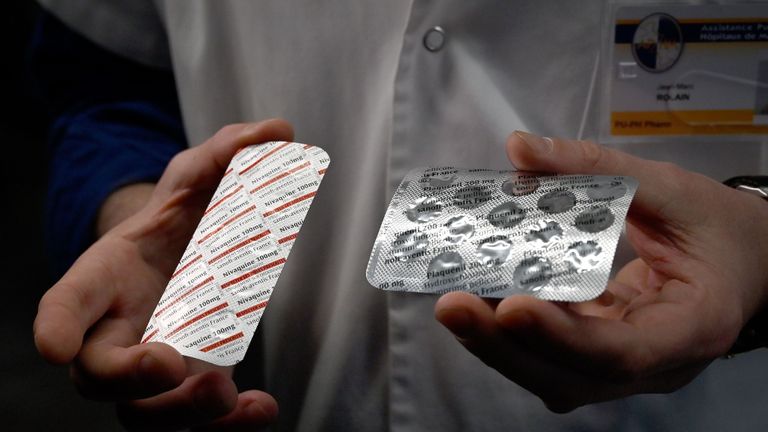Three of the scientists behind a controversial study that suggested that the malaria drug hydroxychloroquine raised the risks of death for coronavirus patients have retracted their work.
The Lancet medical journal published the scientists retraction on Thursday, two days after the journal's editors published their own "expression of concern" about the study.
Chloroquine and hydroxychloroquine are two of the drugs being investigated as possible
COVID-19
treatments.
US President Donald Trump has consistently promoted the benefits of hydroxychloroquine and is taking it himself as a precaution.

'Yeah I'm taking it, and I'm still here'
But a study, published in The Lancet on 22 May, caused widespread concern about the safety of hydroxychloroquine after it
suggested
it could in fact make patients more likely to die.
The study caused the World Health Organisation to
halt
international trials of the drug, but they have now said they can resume following the retraction.
Questions about the study were raised shortly after its publication, with more than 120 scientists writing an open letter to The Lancet.
An independent third-party review into the findings of the study was subsequently launched.
However, the review has now been abandoned after Surgisphere, the private company which provided the data for the study, refused to share its database with the reviewers.
The company said sharing the data would breach client agreements and confidentiality requirements.

What is hydroxychloroquine - the drug Trump is pushing to treat COVID-19?
Three of the study's four authors have therefore said that they "can no longer vouch for the veracity of the primary data sources," and have asked the journal to retract their work.
Dr Mandeep Mehra from Harvard Medical School, Dr Amit Patel of the University of Utah and Dr Frank Ruschitzka of the University Hospital Zurich, said in a statement: "We all entered this collaboration to contribute in good faith and at a time of great need during the COVID-19 pandemic.
"We deeply apologise to you, the editors, and the journal readership for any embarrassment or inconvenience that this may have caused."

Hydroxychloroquine: Hype or the real deal?
The study's fourth author was the founder of Surgisphere, Sapan Desai.
The company's decision not to share its data with reviewers has also led to a second scientific paper on
coronavirus
being retracted - this time by the New England Medical Journal.
The second study has also used data provided by Surgisphere to conclude that certain blood pressure drugs didn't appear to increase the risk of coronavirus patients dying.
It was authored by Dr Mehra, Dr Patel and Mr Desai, as well as SreyRam Kuy of Baylor College of Medicine and Timothy Henry of Christ Hospital in Cincinnati.
 简体中文
简体中文

